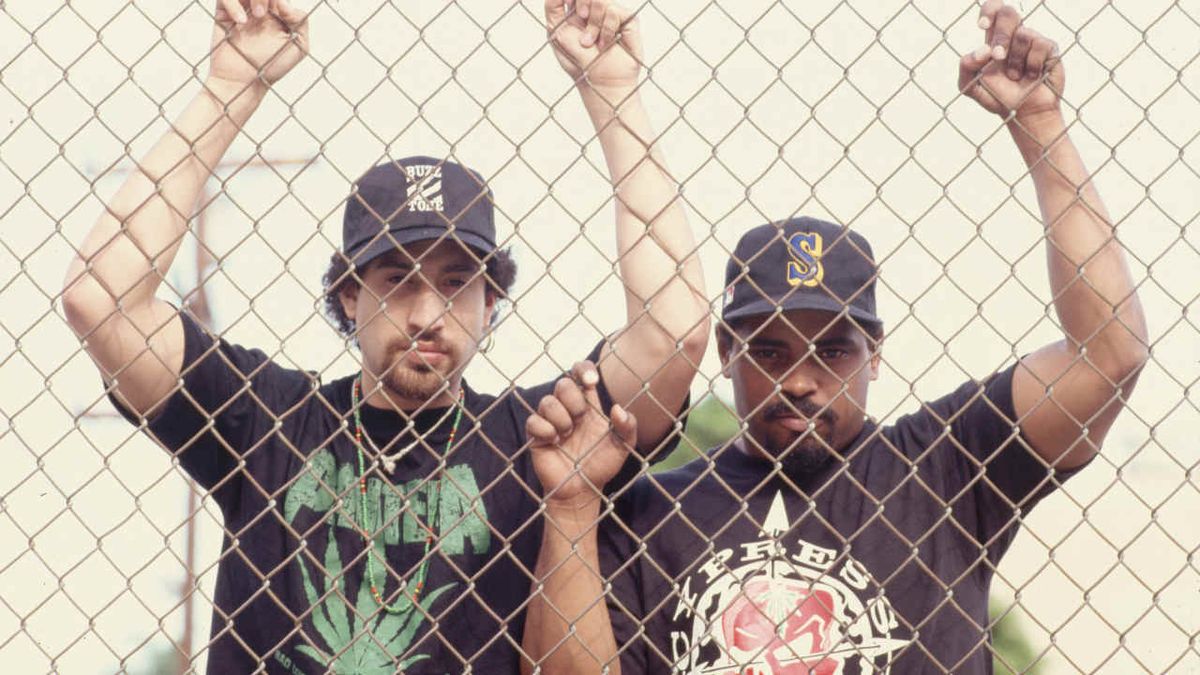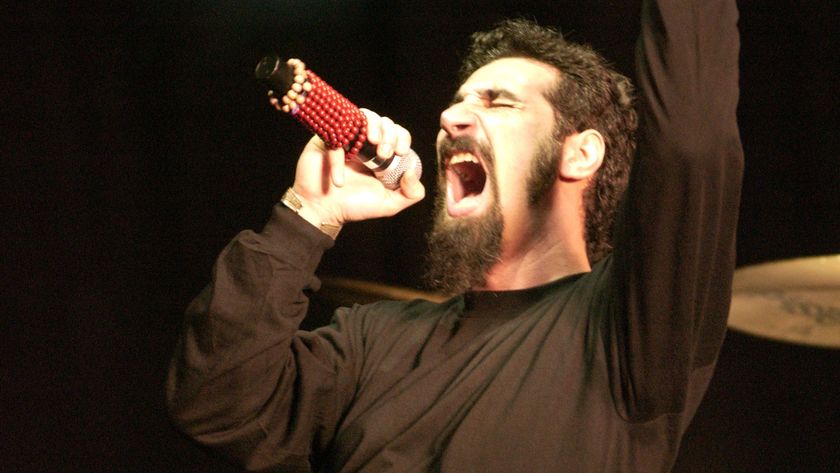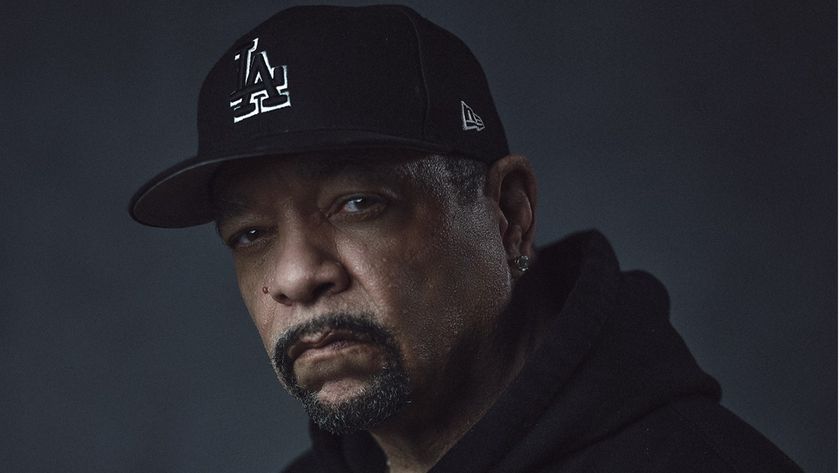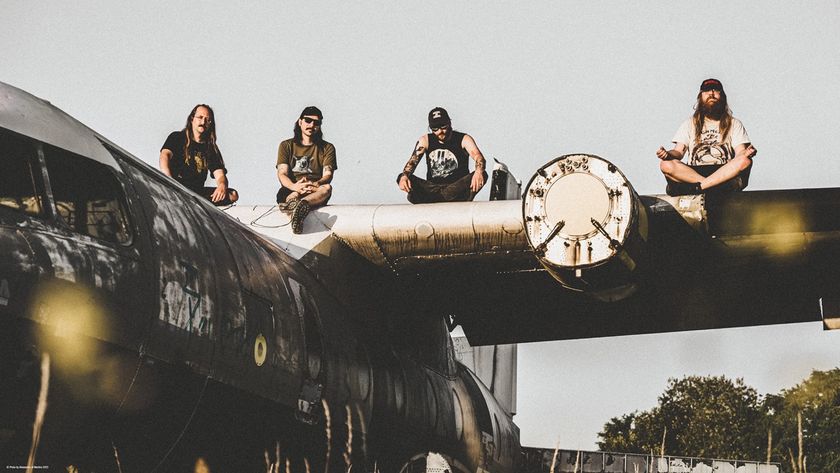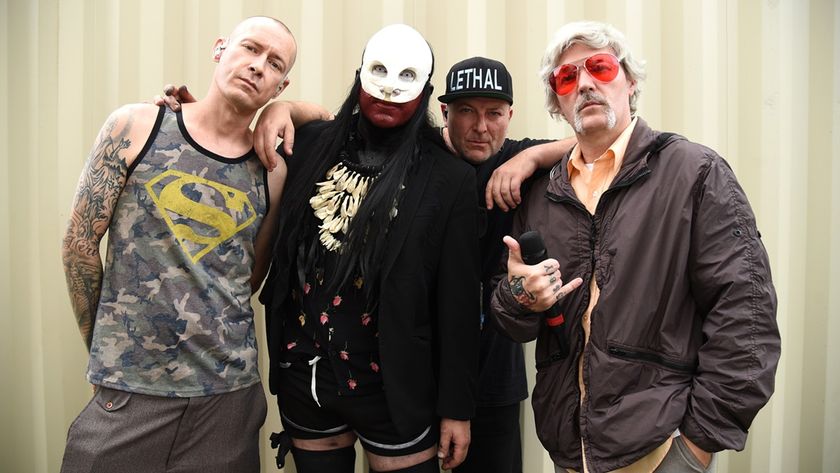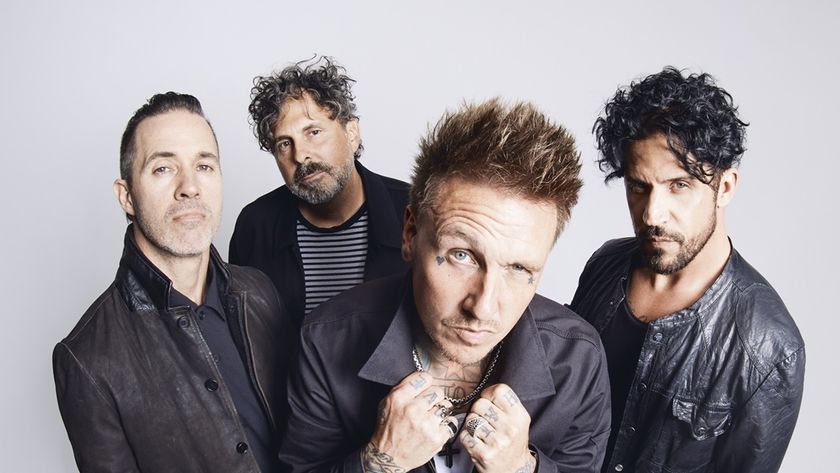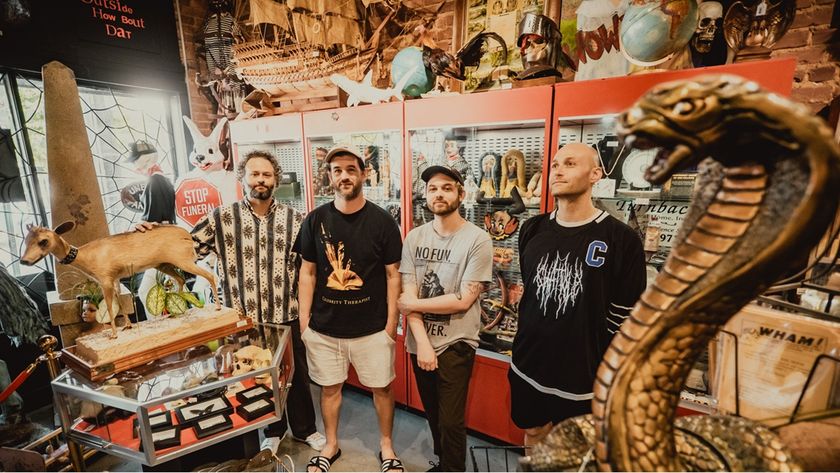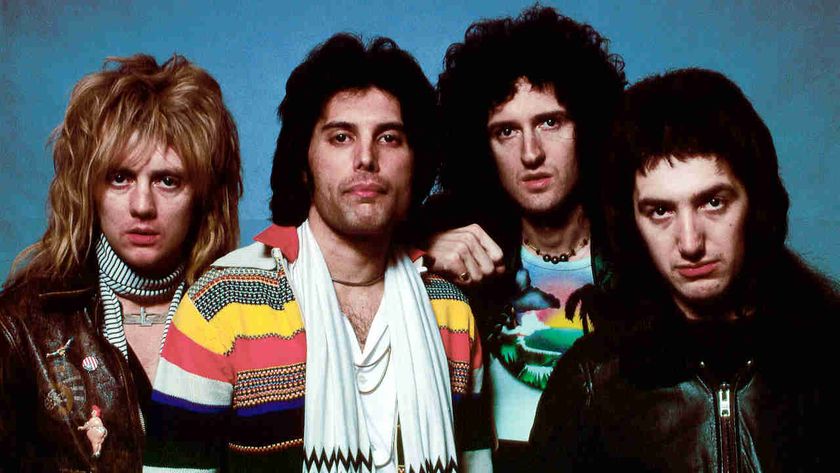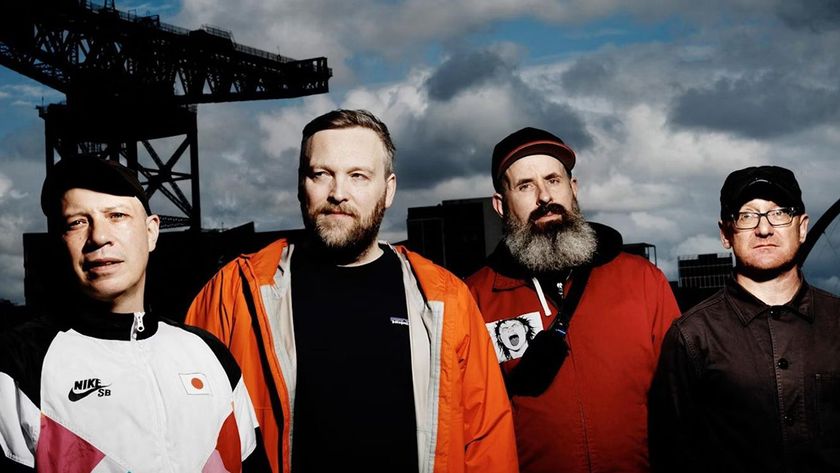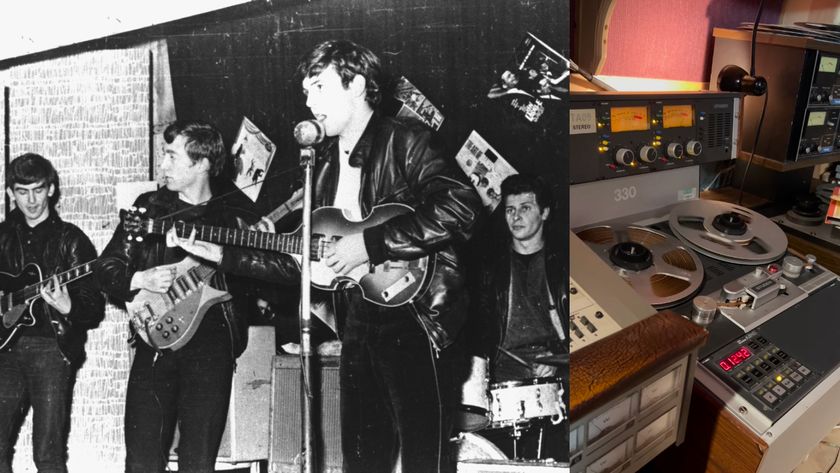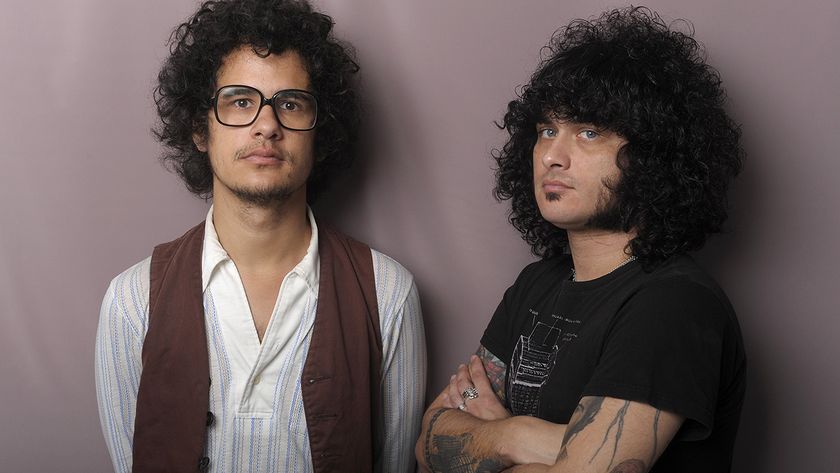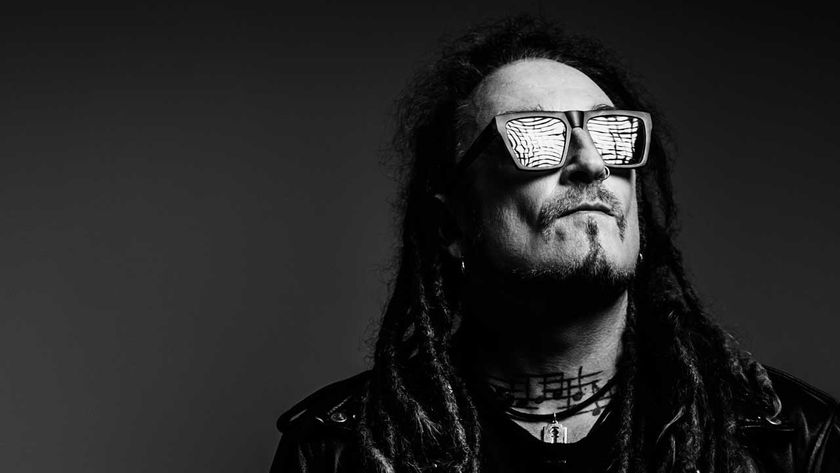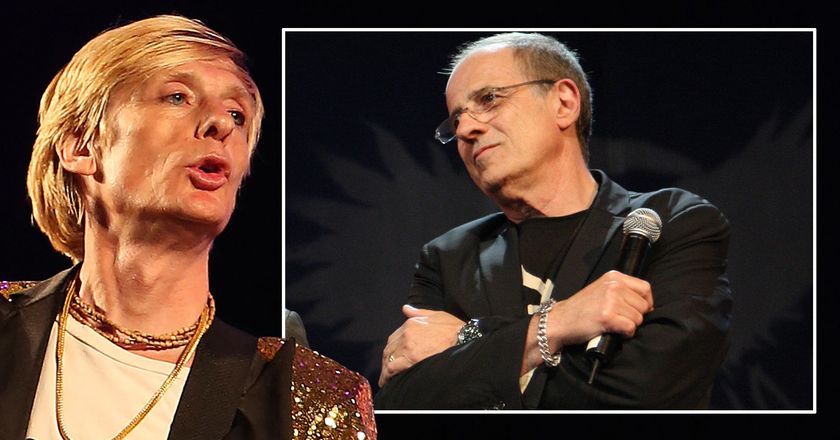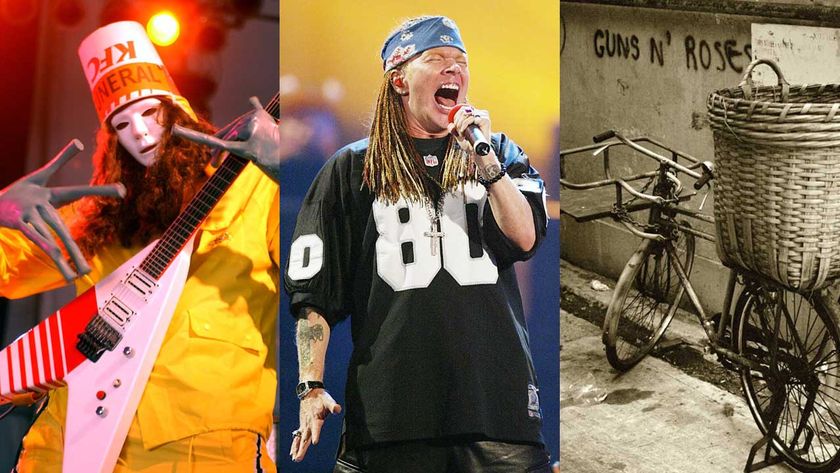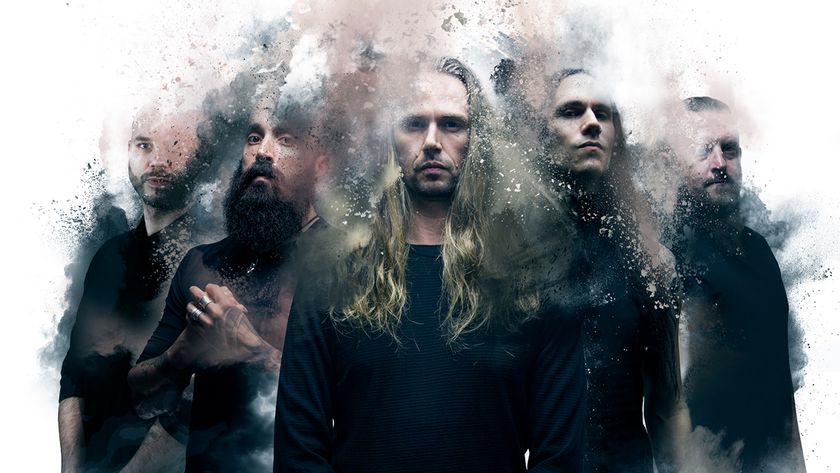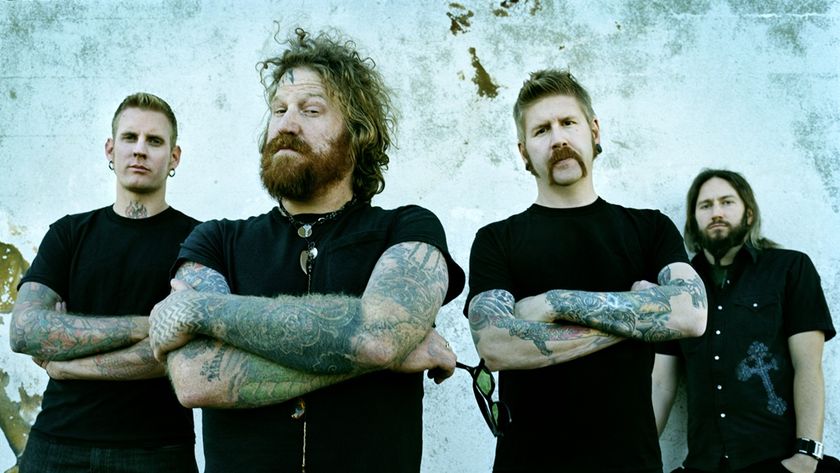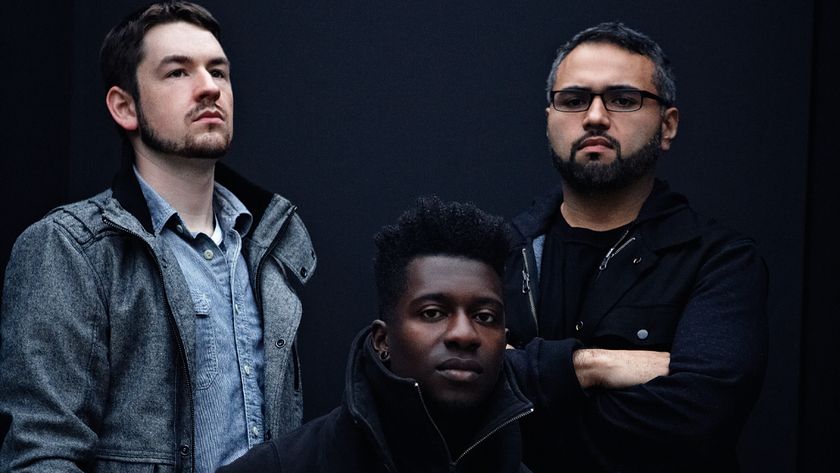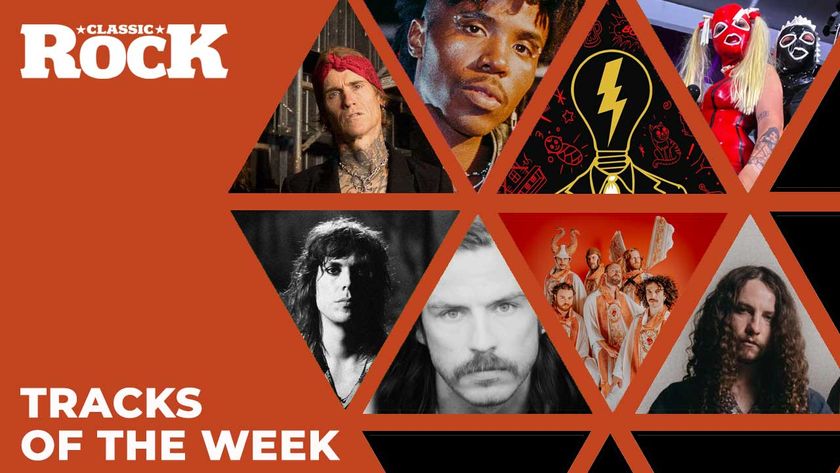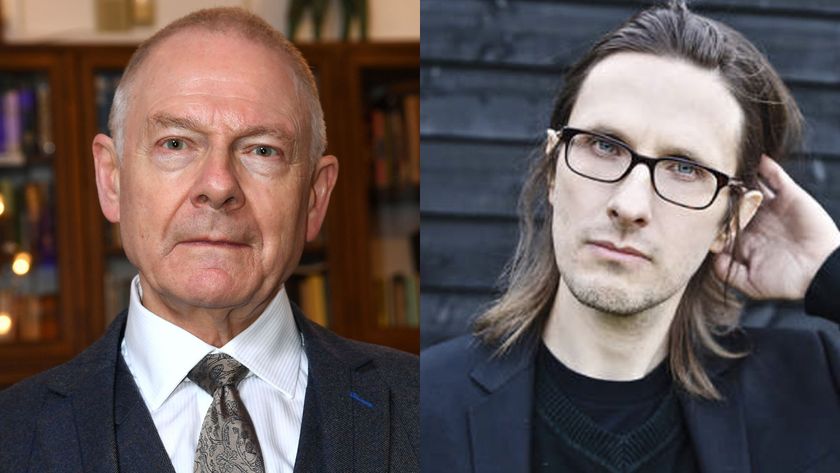Rap and metal had occasionally flirted with each other through the 80s, but it wasn’t until the early 90s when they finally got into bed together. Faith No More’s breakthrough single Epic and Anthrax’s Chuck D-assisted cover of Public Enemy’s Bring The Noise had laid the groundwork for the rap-metal movement that would explode a few years later with Rage Against The Machine’s righteously incendiary debut album.
But at the start of the 90s, it was largely one-way traffic. It was rare to see a hip hop group embrace, and be embraced by, metal. That was until the arrival of Cypress Hill, and their game-changing 1993 hit Insane In The Brain - a song that bridged the gaps between the two genres, captured the hearts of metal fans and turned the LA group into one of the greatest crossover hits of the decade.
“Obviously we loved hip hop and rap, LL Cool J, Run-D.M.C., Erik B. & Rakim,” says rapper Sen Dog, one third of the original Cypress Hill line-up alongside fellow MC B-Real and producer DJ Muggs. “But we loved rock too. I fucked hard with Led Zeppelin. B-Real loved Pink Floyd. We would drive around smoking with that on in his car and just lose ourselves in it.”
- "A small subset of fans had a practice of showing up to gigs in Nazi regalia." System Of A Down's Serj Tankian on why supporting one iconic metal band was like "rock 'n' roll boot camp"
- "Snoop Dogg said he’d had over a billion streams and made less than $43,000 – that should scare the **** out of everyone." Ice-T on Body Count, dream collabs and more
Cypress Hill’s weed-shrouded self- titled debut album, released in 1991, had been an out-of-the-box success. Sen Dog and B-Real grew up in the rough LA enclave of South Gate, and the powder-keg tension of their hometown fed into woozy yet exuberant songs such as breakout single How I Could Just Kill A Man. Cypress Hill went on to sell two million copies in the US, yet as they began work on the follow-up in early 1992, they were hit by an attack of the fear.
“We were kinda all over the place, we didn’t really know where we were going with the material,” says Sen Dog. “We were still trying to work out what direction the new album was going to take. I remember those sessions had a lot of uncertainty. We were still young, and there were a lot of questions about what we were trying to achieve.”
A couple of things ended the uncertainty, shaping the material they were writing and ultimately producing Insane In The Brain. Firstly, Muggs had produced LA hip hop trio House Of Pain’s 1992 single Jump Around. That track had been a bona fide crossover smash, lighting a fire under rap, rock and mainstream pop crowds alike.
“When I first heard Jump Around I remember thinking, ‘Oh damn, this is really happening! Even the white boys can rap now!’” says Sen Dog.
It also showed Sen and B-Real that allowing Muggs to fully take hold of the creative reins maybe wasn’t such a bad idea. “We knew Muggs had some killer ideas, and we just trusted him to come up with something that could do the same for us,” Sen Dog says. “We were suddenly thinking about competing with these huge songs. That’s the mindset that brought Insane In The Brain about.”
Further proof that they were on the right track came with their appearance on the bill of 1992’s Lollapalooza festival, the touring alt-rock extravaganza that had been launched the previous year by Perry Farrell of Jane’s Addiction. Cypress Hill were on the bill alongside Tool, Soundgarden, Ministry, Pearl Jam and headliners the Red Hot Chili Peppers – something that bought them directly into the orbit of rock and metal fans for the first time. However, the band’s initial impression of the festival was less than favourable.
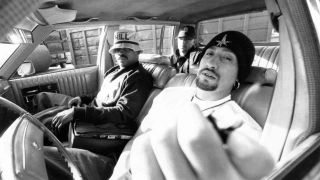
“We were stuck on the side stage about five miles away from the main stage area and it was empty, not a soul in sight,” says Sen Dog. “The guys were like, ‘Yo, this sucks, let’s just get the hell out of here.’ Now me, being the beer aficionado, the party guy, whatever you want to call it, I went looking for a drink. I was walking around the festival and as I did people kept coming up to me: ‘What time are you on? I gotta see you guys!’”
The feedback convinced Sen that it was worth sticking around, and he persuaded his disgruntled bandmates not to flounce off. It proved to be the correct decision.
“About half an hour before we play there’s maybe a few hundred people there,” says Sen. “By the time we walked out onstage there was 5,000 kids there, and when we started playing, they’re losing their shit! People climbing up onstage, people jumping off the speaker stack… I’m in my element, man, this is why I started playing music – I love the chaos! That experience of Lollapalooza really made us think about what we wanted to do with our music.”
After their successful Lollapalooza stint, Cypress Hill went back into the studio to complete their second album, Black Sunday.
“Suddenly we were in the zone,” Sen tells us. “There was no more second guessing, we were all going with the flow, allowing all of our influences to come to light in the material.”
Sen admits that his memory of recording Insane In The Brain is foggy, which may or may not have something to do with the band’s legendary weed intake. “I remember at one point we went out to a studio in New York and Muggs brought some demos out with him,” says Sen. “We listened to his early version of the song there, though I’m not sure if we recorded it in New York or LA.”
The song pulled together the trio’s multitude of influences, riding along on a propulsive dub bass line, a pounding breakbeat and an instantly hooky chorus. Muggs built it up on samples of classic songs by James Brown, Sly And The Family Stone and 60s rockers The Youngbloods, topped off by B-Real’s distinctive nasal flow and Sen Dog’s more bullish approach. “Insane In The Brain was about embracing the rap, the rock, the Latin music,” says Sen. “It all came to the surface.”
Insane In The Brain was released in June 1993 as the first single from Black Sunday. Despite the fact it was so clearly a banger, the band had their doubts that the label had picked the right song.
“We all thought that I Ain’t Goin’ Out Like That was going to be the big song,” Sen smiles. “I remember someone at the label said to us that we were there to make the tunes and they were there to pick the tunes that would make us sell records, so we listened. I’m pretty glad we did.”
The song was an immediate hit, topping the Billboard Rap Chart in the US and reaching No.21 in the UK, selling close to a million copies in total. It helped propel Black Sunday to the top of the album charts in America, catapulting their debut back into the Top 10 - the first time any hip hop band had two Top 10 albums simultaneously.
“That was wild,” Sen barks. “We were No.1, then it’s Whitney Houston and then U2 and then it was us again! That’s when I felt famous all of a sudden. I remember being in traffic and there was a guy in the car next to me, and he was literally freaking out in his car, pointing at me, ‘Cypress Hill! I love you!’ It was a weird time.”
Insane In The Brain didn’t just turn Cypress Hill into hip hop superstars, it became an instant floor-filler at rock and metal clubs, while their Hill gigs turned into full-blown gatherings of the tribes.
“I loved how every time we played that song live the crowd would open up into a big circle-pit,” he grins. “And you could see these hip hop kids spinning with all these long-haired punks and heavy metal guys. We always had nothing but love and respect for heavy metal, and I think the fans could see that, they could tell we were authentic when we talked about it or when we incorporated it into our music. I mean, look at the artwork on Insane In The Brain. That’s a heavy metal logo man!”
Almost 30 years after Insane In The Brain was released, it remains one of the great crossover hits of the early 90s. “I feel very proud that it broke down so many doors, and it brought so many people together,” says Sen Dog. “Not many hip hop acts were truly accepted by the rock crowd before that song came along, and we were pioneers in that sense. But the song itself is just a great song; it’s still hard and heavy today and it captures everything that was exciting and new in rap and rock and alternative music from that time.”
Cypress Hill’s new album, Back In Black, is out now via BMG
